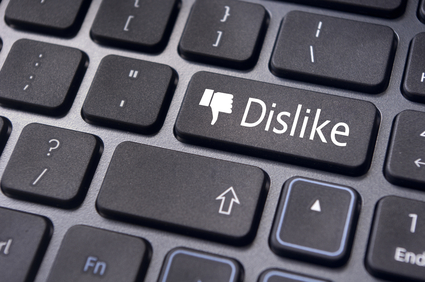

Mobile devices and the Internet have become monumental tools that continue to revolutionize the way people communicate with each other. These instruments foster several purposes, such as recreation, marketing and educational functions. However, it's unfortunate that some individuals use them for negative reasons the same as they would for positive aims.
What is Cyberbullying?
Cyberbullying is a form of bullying, or hostile behavior, that's executed through various technologies, including the Internet, cell phones, and tablets. Offenders text, email, or type negative comments on social media sites in order to embarrass, threaten, abuse, demonize, and publicly mock their victims. Those who are caught or reported to authorities for cyberbullying can face disciplinary action at their school or workplace and even undergo legal charges.
The group mostly targeted for cyberbullying and adolescents and teenagers. According to BullyingStatistics.org, over 25 percent of today's youth have admitted to experiencing bullying via cell phone or the Internet, although fewer than 1 in 5 of these kinds of incidents are reported to the police.
Cyberbullying vs. Traditional Bullying
Cyberbullying is definitely a new version of conventional bullying. While both have the potential to damage a person's self-esteem and reputation, there's still some differences that individuals should be aware of. For one, traditional bullying typically happens in a controlled environment for a specific amount of time, such as a school, place of employment, or recreational building. Cyberbullying, however, can occur at any time of the day or night, making it an even more severe threat if the victim is alone while they're being harrassed.
Secondly, face-to-face bullying identifies the perpetrator whereas cyberbullying gives victimizers the privilege of remaining anonymous. This is why it's even more crucial to report this kind of behavior to law enforcement since these professionals have the equipment that enables them to decode information and expose the identity of cyberbullies.
Effects of Cyberbullying
There's several detrimental effects of this malicious act. Victims of cyberbullying are more likely to be insecure and have low self esteem which usually maximizes their tendency to be vulnerable to further maltreatment. It's also common for those who have experienced cyberbullying to abuse drugs and alcohol, become bullies themselves, and incur a number of health issues. Sadly, many individuals become suicidal as well.
Prevention Tactics
In order to stop cyberbullying, it's essential to spread awareness about this vicious act that alienates individuals. Adolescents and teenagers shouldn't be afraid to report abuse to an authority figure, and parents can safeguard their kids' activity online. Educators and other professionals should pay close attention to subtle changes in the behavior of potential victims or recurring aggression in cyberbullies.
Cyberbullying is a hurtful activity that harms individuals in numerous ways. You may not be able to put an end to this behavior alone, but with the help of others who are equally passionate about preserving the welfare of their community, you can be part of a movement that recognizes the problem.
Many parents are still in the dark about cyberbullying. Become informed with our eBook: “10 Essential Things Every Parent Should Know about Cyberbullying.” Download your free copy today!



